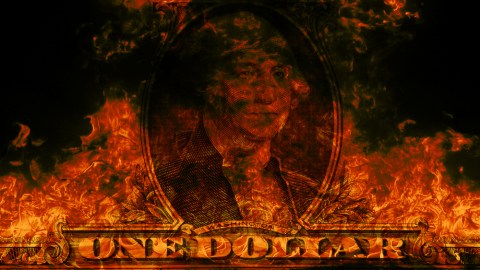How We Are Influenced by Super Symbols

In Drunk Tank Pink I talk about the effect of symbols on various outcomes. And some of the symbols I talk about I call super symbols. And they’re super symbols because they have even greater meaning than maybe some other symbols do. And I think maybe the greatest super symbol in our culture and in the world today is money. Money means so much to so many people. It’s a stand in for so many different outcomes. And, in fact, if you have people watching money as it’s being destroyed they respond as though they’re in physical pain. So some of the responses people have is they’re almost watching the extinction of possibilities and that’s very painful to them. And certain parts of the brain will respond in kind as though they’ve been put through physical pain.
So money stands in for all sorts of possibilities for us. And so when we’re exposed to money, to the symbol of money, we respond in all sorts of ways that are consistent with that. So one of the things we do is we become less willing to ask other people for help. Money is a sign that we’re independent and strong and don’t need to rely on others. And that’s often for worse.
And so the idea of a scrooge who secludes himself and is not interested in interacting with other people or helping other people is activated by the presence of money. And if people are told you’re now gonna sit in a room, you’re gonna complete a very difficult task, you can come around the corner, we’ll be just down the hall – if you need some help just let us know. If you leave people to do that and they happen to have been exposed to money either because there’s a poster of money on the wall or because they just flipped through a book with some images of money, they’re much slower to come around the corner or down the hall to get help. So we’re less likely to seek help.
We’re also less likely to give help. So it makes us a little bit more distant and a little bit more reticent to help someone. So in one study people were shown again these images of money or they were not shown images of money. And then later on they were walking down a hallway and someone who was in on the experiment knew what was happening was walking down the hallway with a box of pencils. And they strategically dropped this box of pencils so these pencils crashed to the ground. They’re all rolling around everywhere. And the experimenters were interested to see whether people would help these hapless students pick up the pencils. What they found was that if they’d been exposed to money beforehand the participants in the experiment bent down and picked up maybe a couple but not that many pencils. If they hadn’t been exposed beforehand they were much more generous and much more willing to help.
So money makes us less likely to seek help, less likely to give help. Another thing it does is it makes us feel less pain, less physical pain. So there’s some evidence that we’re actually able to withstand greater physical pain if we’ve been exposed to money. It’s almost as though the money dulls the force of that physical pain. And being reminded that you have money as an alternative or as a backup plan makes you somehow better able to keep your hand in a very cold bath of water which happens to be very painful. So money does a lot of things for us. Some of them good, perhaps, and some of them less good. But it’s a very powerful symbol and it influences us in a number of different ways.
In Their Own Words is recorded in Big Think’s studio.
Image courtesy of Shutterstock.





